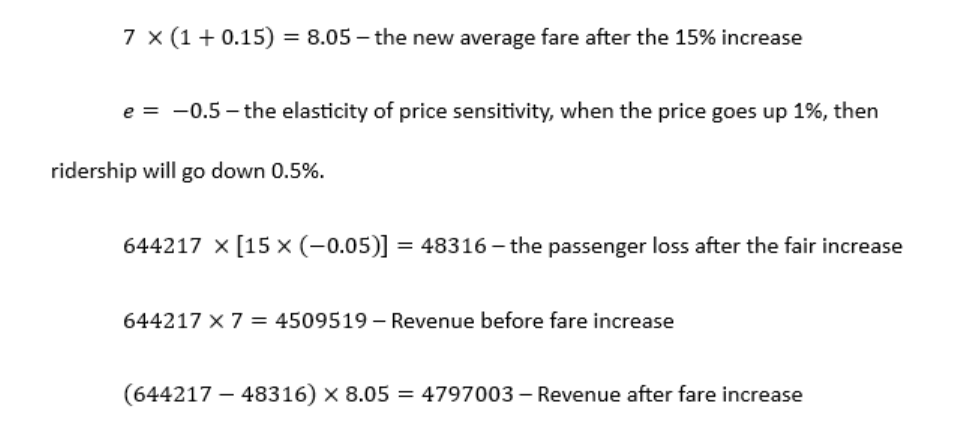Urban Mass Transit: NJ Transit Fare Inccrease
New Jersey Transit Fare Increase
Fare increase is one of the most common topics in public transportation after the Covid pandemic. Operation agencies claimed that they are continually suffering from a decrease in income due to the ridership decline between 2020 and 2022. But there are also concerns that the price increase will enlarge the decrease of ridership.
New Jersey Transit is one of the latest agencies to increase the fare. In January 2024, they started collecting feedback on a system-wide 15% fare increase, effective in 2025. What is the trade-off between fare and ridership? Will the fare change fill the gap left by the ridership decrease? Here is a simple calculation involving basic economic models.

The last time NJ Transit hasn’t increased their fare in nearly a decade. Therefore, there is not enough public data on ridership to validate the estimation of the balance between fare and ridership. To support the result, I need to quote Litman that transit price elasticities are lower for transit-dependent riders. NJ Transit is expected to be less likely to see a significant decrease in ridership due to the price increase, especially given the commuter rail services with a large number of fixed passengers.
